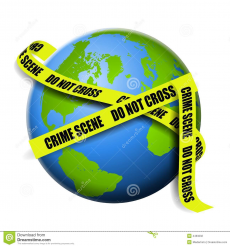
Email: ZYVC057@live.rhul.ac.uk
Total Article : 213
About Me:I'm a graduate student studying International Criminal Law and first started writing for King's News almost 4 years ago! My hobbies include reading, travelling and charity work. I cover many categories but my favourite articles to write are about mysteries of the ancient world, interesting places to visit, the Italian language and animals!

One of the benefits of being a Politics and International Relations student is that I get to study some of the most adventurous, dangerous and varied aspects of social interaction. From the justice system or warfare to global hunger or upcoming elections that can change a nation forever, my course gives me not only the freedom to discover where my own interests lie but also the tools I need to study them. I have always been fascinated in the divide between good and evil, rich and poor, developed and undeveloped.
When I was 16 I played the role of Judge of the International Court of Justice at GeMUN (a simulation of the United Nations for high school students held in genoa, Italy). After being informed I had gotten the placement, I was hit by a sudden sense of utter bewilderment: I knew absolutely nothing about the international justice system, even less about the crimes it dealt with! That is when I first began researching the International Court of Justice and the International Criminal Court and, although I was to be part of the first during the simulation, I became growingly interested in the latter. The International Criminal Court is a global justice forum where the world’s leading criminals can be trailed and prosecuted; it is where men that have literally tried to obliterate a population or plotted other horrific acts can finally recognised as unlawful and sentenced. Whilst this did interest me greatly, it did not quench my desire to know more about the crimes committed, so as of this year I am going to study Globalised Crime at University.
Like the majority of terms we use in politics, the definition of global organised crime is intensely debated. Some use the term to refer to an entity, an organised criminal group, whilst others prefer to refer to the actions carried out by this group rather than the entity itself. Despite this, we do have a pretty concise idea of what global organised crime (or transnational organised crime) is. It can be described as a series of criminal activities, carried out by an organised group, which transcends national borders and uses violence, corruption and/or intimidation to gain power (be it economic, social or political power). The concept of global organised crime is continuously expanding and includes money laundering; human smuggling; cybercrime; and trafficking of humans, drugs, weapons, endangered species, body parts, or nuclear material. Global organised crime produces fundamental societal drawbacks: it goes again the diffused concept of democracy, corrupts free markets, drains national valuables, and prohibits the development of societies. Due to these factors, both national and global organised criminal groups provide a serious security threat to all nations, Transnational crime networks are usually set up in nations whose government is too unstable or week to prevent the activities from taking place, as the illegal activities carried out usually provide massive profits. Through the use of corruption, threats, violence and terror international organised crime creates global instability and undermines the idea of an idyllic global society.
Image: http://thumbs.dreamstime.com/z/earth-as-global-crime-scene-4463232.jpg

0 Comment:
Be the first one to comment on this article.